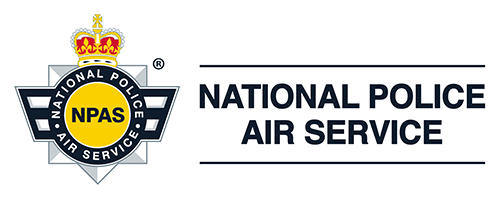Annual Report 2022/23
This report highlights the valuable and unique work of the ground and air crews of the National Police Air Service (NPAS).
NPAS is the UK’s largest non-military operator of onshore helicopters.
Since its formation in 2012, it has provided vital air support to every police force in England and Wales from its regional bases and HQ Operations Centre.
With a fleet of 19 rotary and four fixed wing aircraft, the service is unrivalled in its ability to provide an aerial perspective of ongoing police operations; combining dynamic incident response and tactical search direction with a 24/7 cross-border capability.
Set against a challenging operating environment, where resources and demand are often conflicting, air support is a strategic policing requirement, delivering impact and value that is often underestimated.
Our Annual Report explains our work and achievements of 2022/23 as we proudly deliver public safety from the air.
Introduction from Chief Constable of West Yorkshire Police John Robins, QPM DL
I am pleased to introduce the NPAS 2022-23 Annual Report.
This report marks ten years since the National Police Air Service (NPAS) was formed to deliver air support to police forces across England and Wales.
NPAS is a unique and complex arrangement, bringing every force together in a national collaboration to deliver efficient and effective policing from the air.
For over a decade, West Yorkshire has had the privilege of leading the service and I am incredibly proud of all it has achieved and continues to achieve every day.
There is little doubt that air support brings a distinct advantage to police operations.
Our helicopter and aeroplane crews offer an unrivalled view which saves valuable time and resources and, even more importantly, saves people’s lives.
Air support not only reduces crime and safeguards vulnerable people, but it is at the forefront of keeping our officers and staff safe too.
Like all aspects of policing, the service continues to evolve and NPAS is working with forces to understand how new technologies might be used to enhance the value that air support brings to policing operations, now and in the future.
Work has begun on a comprehensive fleet replacement programme, delivering the most significant investment in police aircraft and equipment since NPAS was formed in 2012.
Additionally, the innovative work that is underway to explore the capabilities of crewless aircraft promises a potentially exciting future for police aviation.
As we transition NPAS to a new hosting arrangement and look towards the transformation of the service to meet the future needs of policing, this report looks back on the achievements of the last year and reminds us of the core purpose of police air support.
Quite simply, that is saving lives and making our communities safer. NPAS continues to do that every day.
The value of police air support
Policing from the air offers better value than most people might think.
Over 80% of our taskings can be categorised as:
- Suspect searches or containments
- Vehicle searches or follows
- Missing or injured people searches
Each of these scenarios can be resource intensive for police forces, often demanding a large number of specialist and responsive ground units and support personnel, for prolonged periods of time.
This will often come at a greater financial cost than deployment of an aircraft - not to mention the potential human cost.
Key to our success, is timing. The sooner our aircraft are deployed, the greater chance of a successful outcome.
Even when a person isn’t directly found by an aircrew, eliminating search areas quickly and thoroughly can be invaluable for forces, saving them time and resources and helping focus their ground operations where they need to be.
Our true value comes from the results we achieve.
Take missing people searches, for example.
A helicopter or aeroplane allows for a search to take place in the dark. It is much quicker and is capable of searching areas that ground personnel may only be able to reach with great difficulty, such as cliff edges.
In the absence of an aircraft, forces would have to engage significantly more vehicles and officers, at all levels, to maximise the probability of finding a missing person in the first hour - critical for high risk and vulnerable people.
The same can be said for the containment of suspects. In the absence of air support, more ground resources would be required to monitor a suspect’s movements and cover potential escape routes.
In vehicle pursuits, air support allows roads policing officers the opportunity to maintain a safer distance from the suspect, without risking the likelihood of the suspect being lost.
In 2022/23, over 88% of taskings attended by an NPAS aircraft resulted in a positive outcome.

